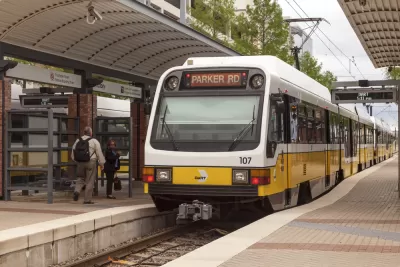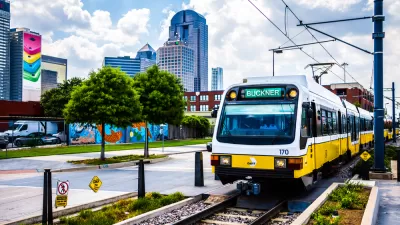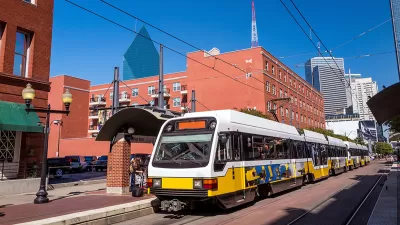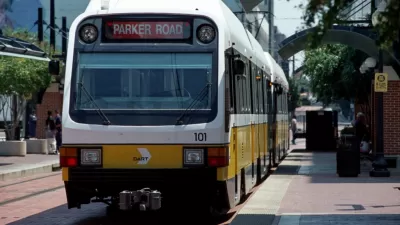An advocate for the Cotton Belt line to connect Dallas with suburbs to the north is tired of the project taking a backseat to the transit interests of the urban core.

Ron Whitehead provides an opinion piece for The Dallas Morning News arguing for a regional focus to transit planning in the Dallas area. Whitehead reacts to the results of the traditional "hub-and-spoke" approach to regional transit, pitched some 35 years ago in Dallas:
Building out from the hub would mean all of the money for light rail for the first 20 years of DART's existence would be spent entirely within Dallas. The suburbs would get connectivity through bus service until the spokes could be built out to them in the future. That was what happened for 20 years and we continued to pay our part and believe in the concept of regional transit.
Now, however, plans for a D2 downtown subway line have been played against a proposed Cotton Belt connection to the suburbs. According to Whitehead, the debate has been "disheartening to many of us who have been here from the beginning." Although the Dallas Area Rapid Transit (DART) board recommended in October that both projects move forward, Whitehead asks that the readers not be fooled: "the goal among some people in Dallas is to kill the Cotton Belt so that it won't go through North Dallas."
As a response to what he describes as the perpetual neglect of suburban interest in the regional transit planning, Whitehead calls for suburban interests to be selected to fill vacancies on the DART board.
FULL STORY: Dallas must show commitment to regional transportation with DART appointments

Alabama: Trump Terminates Settlements for Black Communities Harmed By Raw Sewage
Trump deemed the landmark civil rights agreement “illegal DEI and environmental justice policy.”

Planetizen Federal Action Tracker
A weekly monitor of how Trump’s orders and actions are impacting planners and planning in America.

How Atlanta Built 7,000 Housing Units in 3 Years
The city’s comprehensive, neighborhood-focused housing strategy focuses on identifying properties and land that can be repurposed for housing and encouraging development in underserved neighborhoods.

In Both Crashes and Crime, Public Transportation is Far Safer than Driving
Contrary to popular assumptions, public transportation has far lower crash and crime rates than automobile travel. For safer communities, improve and encourage transit travel.

Report: Zoning Reforms Should Complement Nashville’s Ambitious Transit Plan
Without reform, restrictive zoning codes will limit the impact of the city’s planned transit expansion and could exclude some of the residents who depend on transit the most.

Judge Orders Release of Frozen IRA, IIJA Funding
The decision is a victory for environmental groups who charged that freezing funds for critical infrastructure and disaster response programs caused “real and irreparable harm” to communities.
Urban Design for Planners 1: Software Tools
This six-course series explores essential urban design concepts using open source software and equips planners with the tools they need to participate fully in the urban design process.
Planning for Universal Design
Learn the tools for implementing Universal Design in planning regulations.
Caltrans
Smith Gee Studio
Institute for Housing and Urban Development Studies (IHS)
City of Grandview
Harvard GSD Executive Education
Toledo-Lucas County Plan Commissions
Salt Lake City
NYU Wagner Graduate School of Public Service





























